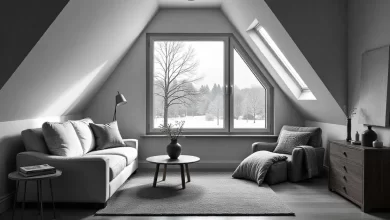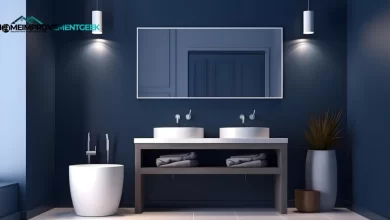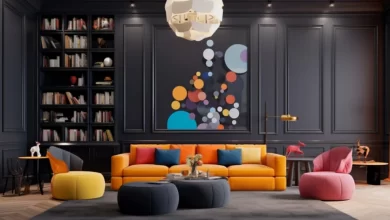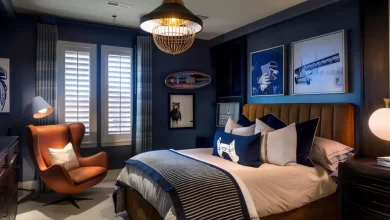How Much Do Hunter Douglas Blinds Cost?
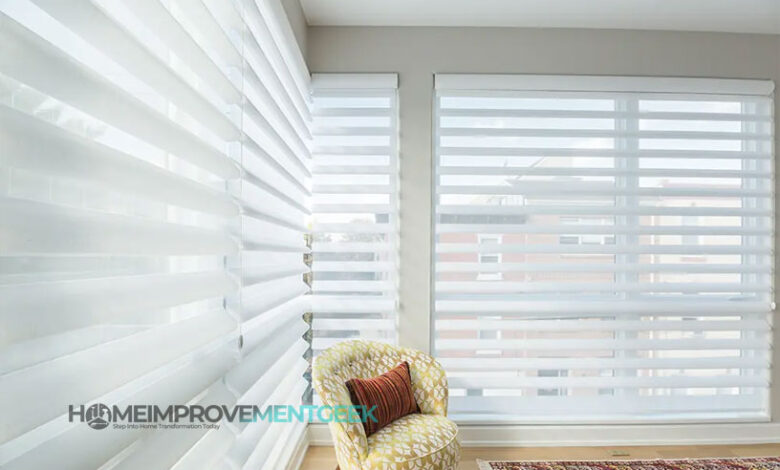
Hunter Douglas blinds are some of the most popular window treatments in homes across America. With customizable options, innovative motorization systems, and superior craftsmanship, it’s no wonder why many homeowners specifically seek out these premium blinds. But such quality and features come at a cost – typically between $20 and $36 per square foot of material.
The exact price of Hunter Douglas blinds depends on several key factors. The type of blind, size of the window being covered, customization options selected, and motorization choices can all impact the final price quote. By understanding these cost considerations, homeowners can better set budgets and evaluate if the investment in Hunter Douglas window treatments is worthwhile for their needs and tastes.
Factors Affecting the Cost of Hunter Douglas Blinds
Several key factors influence the price of blinds from Hunter Douglas:
Type of Material
Hunter Douglas offers blinds made from a range of materials, including aluminum, wood, faux wood, and fabric. The cost largely depends on the base material used:
- Aluminum blinds – The most affordable option starting around $20 per square foot
- Faux wood blinds – offer realistic wood look for less, starting around $25 per square foot
- Wood blinds – Range from $30-36 per square foot depending on wood type
- Fabric blinds – Vary greatly based on fabric type, starting around $30 per square foot
So an aluminum blind will generally cost less than a comparator wood or fabric blind for the same window size.
Type of Blind
In addition to the base material, the specific type of blind also impacts price. Some popular Hunter Douglas blind types include:
- Venetian blinds – Classic louvered blinds starting around $20 per square foot
- Vertical blinds – Unique look with stacked vertical slats for $25+ per square foot
- Roller blinds – Roll-up fabric blinds starting around $30 per square foot
- Roman blinds – Sophisticated folded fabric blinds for $35+ per square foot
So a basic Venetian may be less expensive than alternatives like Roman blinds in the same material.
Size of Window
Cost is directly correlated to the total square footage of material needed to cover a window. An 8-foot by 5-foot window will need significantly more material than a 2-foot by 2-foot window. So measure precisely when pricing out options.
In summary, while most Hunter Douglas blinds run $20-36 per square foot, the specifics of the product ultimately determine the final price.
Types of Hunter Douglas Blinds and Their Costs
Hunter Douglas offers an extensive catalog of window treatment options. Some of the most popular choices include:
Wired Motorized Blinds
For the ultimate convenience, Hunter Douglas’ PowerWand wired motorization allows blinds to be raised, lowered, or tilted using a simple wand control or integrated automation system. This capability comes at a price though.
The PowerWand system adds between $150-300 per shade depending on size and style selections. Then the blinds themselves would be an additional charge based on square footage and material. So motorization significantly increases costs compared to standard manual operation blinds.
Remote-Controlled Shades
Hunter Douglas also offers PowerView Motorization with remote-controlled operation via remote, a smartphone app, voice assistant, or automation hub. This gives convenient control without wiring while still offering home automation integration.
PowerView Motorization starts at $299 per shade depending on specifications. The shades themselves would again be an extra charge per square foot. So while still a premium upgrade, PowerView can provide wireless convenience for less than wired PowerWand systems.
Custom Blinds
Beyond operation styles, Hunter Douglas blinds can also be customized with unique materials, textures, patterns, and colors to fit specific room aesthetics. Custom silk Roman shades or wooden blinds with hand-stained finishes increase cost over standard offerings. Exact pricing depends entirely on the materials and details selected by a customer.
So when weighing the total cost of Hunter Douglas blinds, homeowners must consider both the operational features and customization add-ons they want for their home’s windows.
Customization and Personalization
One of the top reasons homeowners choose Hunter Douglas blinds is for the unparalleled level of personalization possible. With customized features, homeowners can select window treatments that perfectly match their style and spaces.
Fabrics and Textures
Hunter Douglas offers an incredibly diverse fabric lineup for shade materials. Homeowners can select varied fabrics like linens, grasscloths, silks, cotton, microfibers, and more. Additionally, unique textured fabrics like ribbed stripes, bamboo weaves, embroidered patterns, and metallic sheens offer nearly endless possibilities.
The cost for these specialty fabric upgrades ranges drastically based on the material quality and intricacy. More delicate handcrafted fabrics with detailed embellishments are priced higher than everyday cotton or polyester blends. But the personalized options let homeowners add designer details at rescale.
Colors and Patterns
Beyond textures, homeowners can also customize shades and blinds with trending paint colors, vivid bright hues, soothing neutrals, or bold patterns like wide stripes, floral prints, checks, geometrics, and ikats. Again, more complex patterns or multi-color options cost more than standard colors.
However the massive spectrum of shades and colors offered by Hunter Douglas allows homeowners to perfectly match room colors, tie together disparate schemes, or make dynamic accent statements.
In summary, fabric customization grants truly bespoke window treatment options to match any style. The investment ranges based on exactly how specialized the materials selected are.
Hunter Douglas PowerView Motorization
Hunter Douglas PowerView Motorization utilizes radio frequency and PowerView App technology to operate shades via smartphones, tablets, voice assistants, and home automation systems. This battery-powered system allows remote control without wiring, offering convenience through automation.
Cost
PowerView Motorization starts at $299 per shade, with pricing scaling up based on the size and style of shades selected. The system works with most Hunter Douglas shades, with popular compatible options including:
- Heritance® Hardwood Shutters
- Pirouette® Window Shadings
- Silhouette® Window Shadings
- Vignette® Modern Roman Shades
So PowerView does add a significant premium over standard shades. However homeowners gain entire-home control and scene setting through a centralized app and automation integration.
Features
PowerView Motorization and accompanying app allows homeowners to:
- Open or close shades via app, remote, or voice control
- Create scheduled scenes like “morning” or “movie night”
- Integrate shades into home automation systems
- Control remotely while away from home
- Operate multiple shades or rooms at once
- Ensure child safety with cordless technology
This smart motorization gives both effortless daily convenience and advanced programmability. Homeowners can customize scenes for how their shades look and perform throughout the day.
In summary, while priced higher upfront, PowerView Motorization enhances comfort, ambiance, and functionality over the lifetime of the shades. So homeowners must weigh the value of automation against the increased cost.
Comparing Hunter Douglas to Other Brands
Hunter Douglas is renowned as a premium window coverings brand. But how does it compare cost-wise to more mainstream affordable alternatives?
Mainstream Brands
Brands like Levelor and Bali offer more competitively priced blinds and shades to fit limited budgets. These mainstays of big box home improvement stores’ prices:
- Venetian blinds start around $15 per square foot
- Roller shades starting around $25 per square foot
So potentially 25-50% cheaper than comparables from Hunter Douglas. But the lower prices do come with drawbacks.
Hunter Douglas Advantages
While mainstream brands have lower price points, Hunter Douglas justifies its premium pricing in a few key ways:
- Materials – Higher quality and more durable materials for better longevity, performance, and feel
- Automation – PowerWand and PowerView offer integrated home automation
- Service – White glove measurement, installation, and support services
- Customization – A wider selection of fabrics, textures, colors, and options
- Design – Stylish, modern designs that elevate room aesthetics
So homeowners pay more upfront for enhancements that improve the day-to-day user experience in form and function. Hunter Douglas window treatments feel and perform substantially better over years of regular wear and tear.
Conclusion
The cost of Hunter Douglas window blinds ultimately comes down to:
- Square footage of materials needed
- Type of blind and material selected
- Motorization and automation add-ons
- Degree of customization and personalization
Window treatment specialists can provide exact pricing quotes for specific project requirements. But for ballpark estimates, most Hunter Douglas blinds run between $20-36 per square foot. Premium automation and fabrics do push costs higher.
While mainstream brands have superficially cheaper options, Hunter Douglas delivers superior quality, convenience, design, and customization. Homeowners must assess if those tangible benefits warrant the increased investment for their home and lifestyle. But those who do choose Hunter Douglas are rewarded with beautiful, high-caliber window treatments that stand the test of time.
